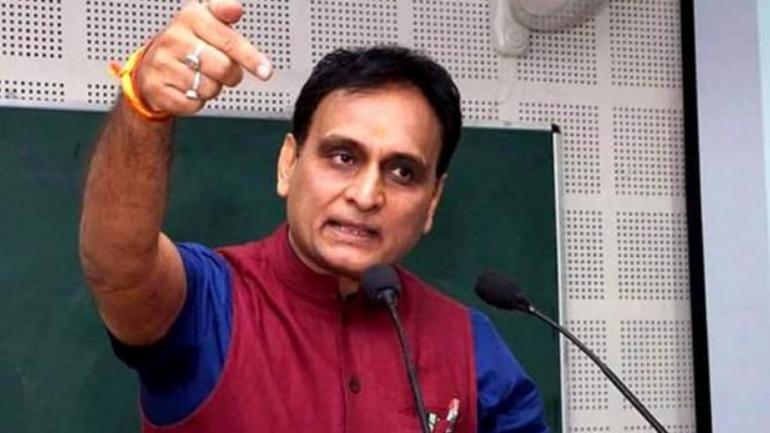As India looks ahead towards a rapidly growing population, calls for bringing in legislation to control this unchecked population growth have been surfacing over the past few years. While the Indian population growth rate at 1.13% was ranked 112th in the world in 2017, for India’s massive 130 crore population this 1.13 % translates to approximately 1.5 crore individuals to its population count, which is approximately equal to 18 times the current population of India’s neighbor Bhutan.
Increased stress on the natural resources due to this continuous spike in population has been a matter of concern, with mainly the economically weaker sections of the society facing the impacts of unchecked population growth. Joining in the efforts towards checking inordinate population growth, Rajya Sabha MP, Rakesh Sinha has introduced a private member’s Bill in the upper house, seeking to enforce a two-child norm. In the Bill, the Member of Parliament has proposed for giving incentives to those adopting the small family practice of two-child norm and penalties for those failing to comply with it.
The Population Regulation Bill, 2019, introduced by Rakesh Sinha in the Rajya Sabha pitches for disqualification of people with more than two living children from electoral contests for MP, MLA and other local bodies after the commencement of the Act. The ‘two-child norm’ Bill also suggests government employees to take an undertaking that they will not procreate more than two children however it maintains that those employees having more than two children before the commencement of the act should be exempted. The Bill also proposes penalties like reduction in subsidies on loans and interest rates on savings instruments, reduction in benefits under the public distribution system, and higher than normal interest rates for availing loans from banks and financial institutions.
“(The Bill) is intended to create a balance between people and the resources, human resources as well as natural resources,” Rakesh Sinha said to The Indian Express. The Rajya Sabha MP also pointed at regional inconstancies in population growth and said, “There is also a case of regional imbalance….while the southern and western states are better off, in the northern and eastern states of India, birth control is either not accepted or not applied. So it is a multi-dimensional problem. Regional, resources, religion – all three factors are there.”
A recently released economic survey also pointed out regional imbalance in population growth. The survey indicated that in the states where education health services are getting better, the population is declining. According to the report, Andhra Pradesh, Delhi, Himachal, Karnataka, Kerala, Tamil Nadu, Punjab, Telangana, Maharashtra and West Bengal will be experiencing a population growth slowdown while states like Uttar Pradesh, Bihar, Jharkhand, Madhya Pradesh and Rajasthan will keep up their Population growth rates. While improved educational and health facilities are poised to ease out the inordinate population growth, similar legislation will surely be instrumental in addressing the situation in a timely manner.
